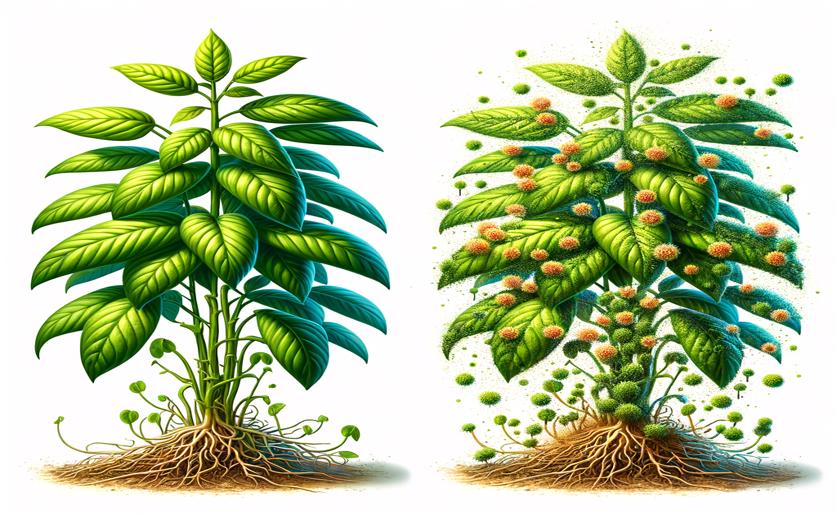
How Two Similar Mutations Affect Plant Pathogen's Fitness
Jenn Hoskins
18th March, 2024

Image Source: Natural Science News, 2024
Key Findings
- Study at Fujian Agriculture and Forestry University found that small gene changes affect plant pathogen survival
- Two similar gene versions in the pathogen showed different strengths and temperature preferences
- These findings suggest that even tiny genetic changes can impact how species adapt to environments
References
Main Study
1) Fitness difference between two synonymous mutations of Phytophthora infestans ATP6 gene.
Published 18th March, 2024
Journal: BMC ecology and evolution
Issue: Vol 24, Issue 1, Mar 2024
Related Studies
2) Synonymous mutations in representative yeast genes are mostly strongly non-neutral.
3) Increasing temperature elevates the variation and spatial differentiation of pesticide tolerance in a plant pathogen.
4) Effects of Synonymous Mutations beyond Codon Bias: The Evidence for Adaptive Synonymous Substitutions from Microbial Evolution Experiments.
5) Sequence and structure comparison of ATP synthase F0 subunits 6 and 8 in notothenioid fish.



 17th March, 2024 | Jim Crocker
17th March, 2024 | Jim Crocker